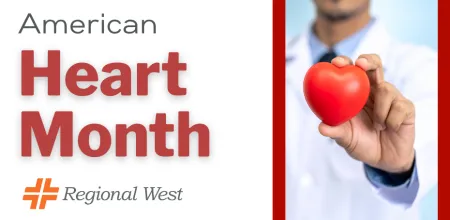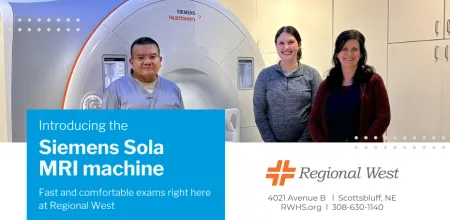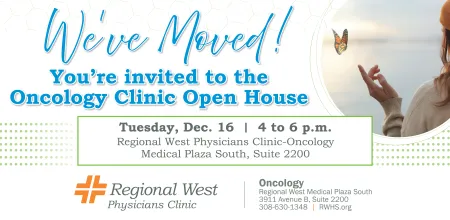Know the Signs and Symptoms of Diabetes in Children and Adults

SCOTTSBLUFF, Neb., – Diabetes is a disease that impairs the body’s ability to produce or respond to the hormone insulin. It results in excess sugar in the blood. Diabetes affects all ages − babies before their born, children, teens, and adults.
In recognition of National Diabetes Awareness month, Regional West health care providers encourage people to know the signs and symptoms of this chronic disease. The three main symptoms of diabetes are increased thirst, increased hunger, and increased urination.
Gestational diabetes is a particular concern among Regional West health care providers.
“Poorly controlled gestational diabetes can be harmful to babies,” said pediatrician Cynthia Guerue, MD, FFAP, of Regional West Physician’s Clinic-Pediatrics. “When a mother’s diabetes is not well controlled early in pregnancy, it significantly increases the risk for congenital defects of the heart, nervous, and gastrointestinal system.”
Gestational diabetes causes the baby’s pancreas to make extra insulin to get rid of blood glucose before birth, but may cause very low blood glucose levels at birth. It puts newborns at higher risk for premature birth, excess weight at birth, breathing problems, and feeding difficulties. All of these complications increase the likelihood of admission to the neonatal intensive care unit, as well as short-term and long-term health problems. Babies with excess insulin become children who are at risk for obesity, and adults who are at risk for type 2 diabetes.
Treatment for gestational diabetes includes special meal plans, scheduled physical activity, and monitoring of and treatment for high blood glucose levels.
“While gestational diabetes is a cause for concern, the good news is that we closely monitor glucose levels in all expectant mothers with gestational diabetes, and work with them individually to carefully control the condition during pregnancy,” said OB-GYN Dorisa Polk, MD, FACOG, with Regional West Physicians Clinic-Women’s Center.
Regional West offers a variety of resources for people affected by diabetes, including medical care, education, and support through the Diabetes Care Center. Regional West diabetes care professionals include a board-certified endocrinologist, advance practice clinician, registered nurses, and dietitians.
In January, the Diabetes Care Center and Regional West Community Health will both offer pre-diabetes classes for adults. Additional information will be made available in December.
For more information about diabetes resources at Regional West or to check your risk for diabetes, visit rwhs.org/services/weight-management-wellness/diabetes-care-center.
Regional West Health Services in Scottsbluff, Neb., is the parent company of Regional West Medical Center, a 188-bed regional referral center and one of three Level II Trauma Centers in the state. As the region’s only tertiary referral medical center, Regional West offers care that spans more than 32 medical specialties provided by over 28 physician clinics. With nearly 300 providers, and over 2,000 employees, Regional West provides comprehensive and innovative health care services for the people of western Nebraska and the neighboring states of Colorado, South Dakota, and Wyoming.








